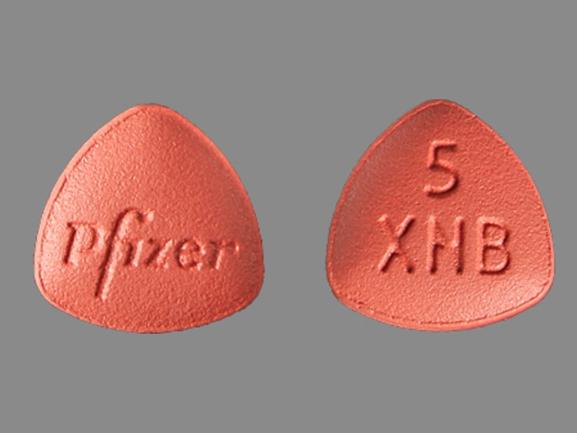Axitinib Interactions
There are 253 drugs known to interact with axitinib, along with 11 disease interactions, and 3 alcohol/food interactions. Of the total drug interactions, 61 are major, 169 are moderate, and 23 are minor.
- View all 253 medications that may interact with axitinib
- View axitinib alcohol/food interactions (3)
- View axitinib disease interactions (11)
Most frequently checked interactions
View interaction reports for axitinib and the medicines listed below.
- Abilify (aripiprazole)
- Abraxane (paclitaxel protein-bound)
- Abstral (fentanyl)
- Actiq (fentanyl)
- Activated Charcoal (charcoal)
- Adriamycin (doxorubicin)
- Albumarc (albumin human)
- Aspir-Low (aspirin)
- Augmentin (amoxicillin / clavulanate)
- Bactrim DS (sulfamethoxazole / trimethoprim)
- Benadryl (diphenhydramine)
- Bosulif (bosutinib)
- Calcium 600 D (calcium / vitamin d)
- Cardizem (diltiazem)
- Crestor (rosuvastatin)
- Dilaudid (hydromorphone)
- Fentanyl Transdermal System (fentanyl)
- Iodides (sodium iodide)
- Keppra (levetiracetam)
- Keytruda (pembrolizumab)
- Lipidil EZ (fenofibrate)
- Metoprolol Succinate ER (metoprolol)
- Morphine Sulfate ER (morphine)
- Nexium (esomeprazole)
- OxyContin (oxycodone)
- Paracetamol (acetaminophen)
- Synthroid (levothyroxine)
- Vitamin B12 (cyanocobalamin)
- Vitamin D3 (cholecalciferol)
- Vitamin K2 (menaquinone)
Axitinib alcohol/food interactions
There are 3 alcohol/food interactions with axitinib.
Axitinib disease interactions
There are 11 disease interactions with axitinib which include:
- hemorrhagic events
- cardiac failure
- GI perforation
- hepatic impairment
- hypertension
- proteinuria
- renal impairment
- RPL syndrome
- thromboembolism
- thyroid dysfunction
- lung toxicity
More about axitinib
- axitinib consumer information
- Compare alternatives
- Reviews (3)
- Side effects
- Dosage information
- During pregnancy
- Drug class: multikinase inhibitors
- Breastfeeding
- En español
Related treatment guides
Drug Interaction Classification
| Highly clinically significant. Avoid combinations; the risk of the interaction outweighs the benefit. | |
| Moderately clinically significant. Usually avoid combinations; use it only under special circumstances. | |
| Minimally clinically significant. Minimize risk; assess risk and consider an alternative drug, take steps to circumvent the interaction risk and/or institute a monitoring plan. | |
| No interaction information available. |
See also:
Further information
Always consult your healthcare provider to ensure the information displayed on this page applies to your personal circumstances.


